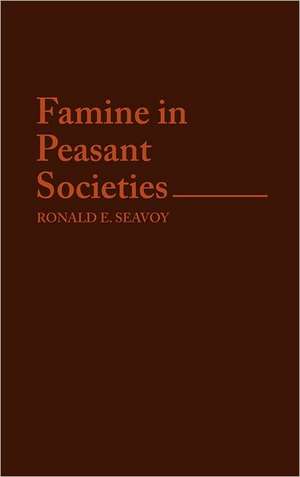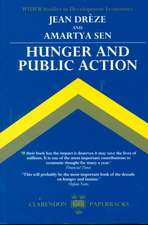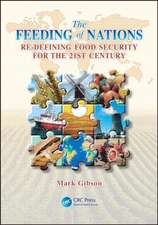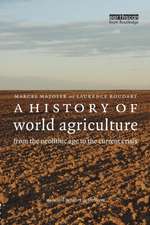Famine in Peasant Societies.: Contributions in Labor Studies,, cartea 66
Autor Ronald E. Seavoyen Limba Engleză Hardback – 31 mai 1986
In this controversial study, Seavoy offers a new approach to the problem of periodic peacetime famine based on the actual behavior of peasants. He maintains that it is possible to increase per capita food production without massive and inappropriate technological inputs. Seavoy shifts the focus from modern development economics to a cultural and historical analysis of subsistence agriculture in Western Europe (England and Ireland), Indonesia, and India. From his survey of peasant civilization practices in these countries, he generalizes on the social values that create what he terms the subsistence compromise. In all of the ages and culture, Seavoy finds a consistent social organization of agriculture that produces identical results: seasonal hunger in poor crop years and famine conditions in consecutive poor crop years. He argues that economic policies have failed to increase per capita food production because economists and government planners try to apply market-oriented policies to populations that are not commercially motivated. Once they understand the subsistence compromise, policy-makers can take appropriate political action.
Preț: 444.17 lei
Preț vechi: 711.36 lei
-38% Nou
84.99€ • 88.98$ • 70.33£
Carte tipărită la comandă
Livrare economică 05-19 aprilie
Specificații
ISBN-10: 0313251304
Pagini: 490
Dimensiuni: 156 x 234 x 27 mm
Greutate: 0.86 kg
Editura: Greenwood Press
Seria Contributions in Labor Studies,
Descriere
Notă biografică
avoy /f Ronald /i E.


















